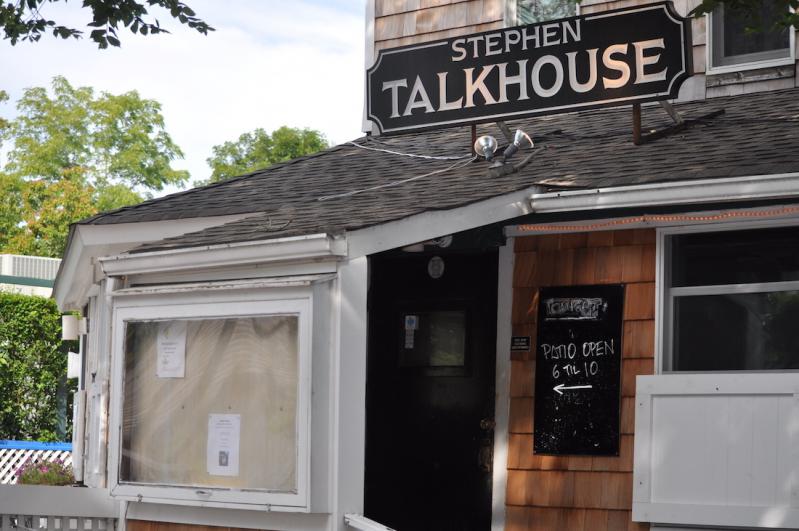Weeks after some venues on the South Fork resumed offering live music, the New York State Liquor Authority clarified language on its website and contacted all bars and restaurants to ensure they were aware of the restrictions that have remained in place in mid-March. Word spread quickly among musicians, some of whom consider it another nail in the coffin for live music.
An official in the S.L.A.’s public affairs office told The Star on Thursday that the authority was responding to an increase in live-entertainment venues advertising ticketed events.
“Live entertainment activities, including all ticketed events, have been prohibited since New York went on Pause in mid-March to stop the spread of coronavirus,” reads a statement by the S.L.A. “Thanks to New Yorkers' hard work, we have achieved, and so far maintained, one of the lowest rates of infection in the country, but these high-risk gatherings would create exactly the situation we are trying to avoid, where people congregate, mingle, and create congestion at points of ingress and egress.”
The content on the S.L.A. website that was apparently altered or added this week reads, “Additionally, please note that only incidental music is permissible at this time. This means that advertised and/or ticketed shows are not permissible. Music should be incidental to the dining experience and not the draw itself.”
Speaking on background, the S.L.A. public affairs official emphasized in an email that “Bars/restaurants are allowed to provide incidental music -- i.e., music that is not the main attraction, but complements dining -- if it is allowed on their liquor license. Remember, we allowed outdoor and (outside of NYC) indoor dining, not concerts.”
The S.L.A. notice “killed our music,” Peter Honerkamp, an owner of the Stephen Talkhouse in Amagansett, said on Thursday. “I had to cancel everything.”
The Talkhouse, which for more than three decades has offered everything from local bands and open mike nights to national and internationally renowned recording artists in an intimate setting, had resumed live music on July 30, with performers inside on the venue’s stage and patrons outside on the patio, where video monitors allowed them to see the performers. A limited number of tickets were offered for performances, which began and concluded earlier in the evening than in the past.
Even with a limited number of patrons, “the bartender, the waitstaff can make a little money, I can give money to my year-round people, plus pay a sound guy,” Mr. Honerkamp said. Until this week, that is. “I had to pull everything,” he said, though he added that the Talkhouse can still host the “trivia night” events for which there is no cover charge.
“I don’t know what the rationale is,” he said. “We’ve been observing social distancing. We have people positioned so if anyone stands up they have to wear a mask.” Mr. Honerkamp was posted by the restrooms to ensure that only one patron could be in one at a time. “We’ve been doing everything right.”
A national act was booked to perform on Oct. 30, he said. “That’s gone.”
“In June, we were all starting to get hopeful that we were going to have some kind of half-occupancy summer,” he said. “All these states that prematurely opened screwed the whole country. I don’t know when this ends.”
The S.L.A.’s move comes weeks after a charity concert in Bridgehampton became the subject of a state investigation and widespread condemnation for attendees’ apparent disregard for protocols intended to halt transmission of the coronavirus. S.L.A. officials have visited bars and restaurants statewide to ensure compliance with state guidelines. During the July Fourth weekend, the owners or managers of three Montauk nightspots were assessed low-level charges having to do with alcohol storage and signs, but video recorded at one depicted patrons dancing in close proximity to one another.




